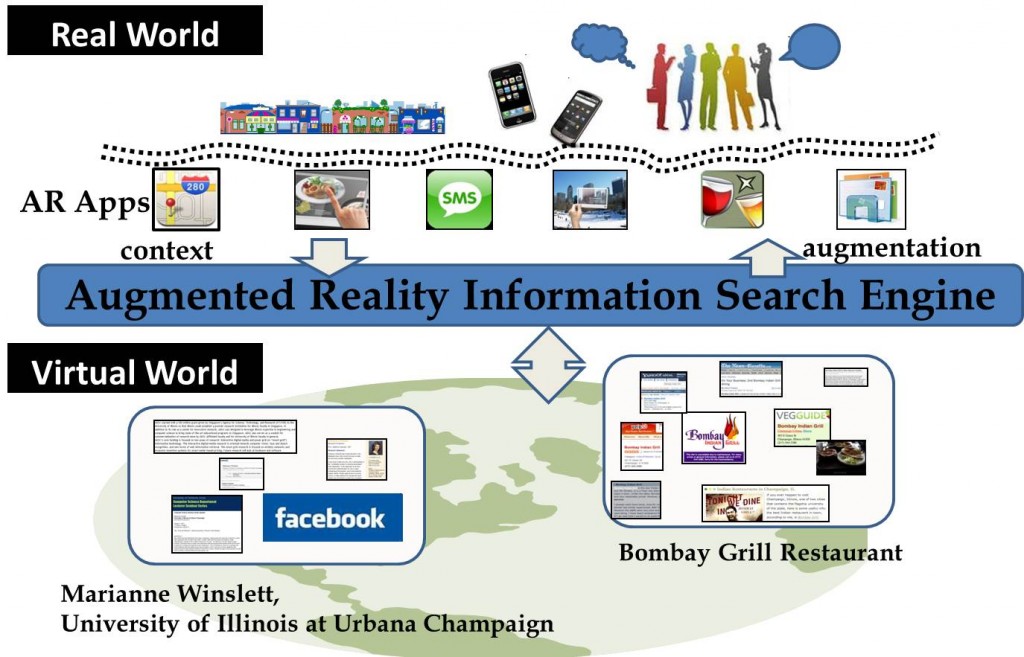Home
ARISE is a research project conducted at the Advanced Digital Sciences Center, led by Professor Kevin Chang from University of Illinois at Urbana-Champaign (UIUC). As part of the Interactive Digital Media (IDM) sub-program, ARISE’s ultimate goal is to provide an information service platform that would provide real-world entity information (such as restaurants and people) to enable augmented reality applications. Such entity-oriented information can be used to develop some innovative augmented reality application such as restaurant search and advertising, or simply fed into some integrative application like virtual meeting which provides people information search for the participants.
The ARISE project, for building the Augmented Reality Information Search Engine, aims to exploit the emerging trends that the virtual world (the Internet cyberspace) and the real world (the geographic world) are increasingly merging into one. With the proliferation of the Internet, everything we find in the real world also appears in the virtual world. On the other hand, with the prevalence of mobile devices, anywhere and anytime we are in the real world, we are also connected to the virtual world. Our vision is thus to enable the seamless “mashing up” of the two worlds, to augment our real world experience with information organized from the virtual world. Our objective, as the figure below shows, is to develop the ARISE service — a set of search functions in the cloud — to provide various mobile apps with information about any real world “entity” of interest, such as places (e.g., Bombay Grill restaurant), and people (e.g., Marianne Winslett from UIUC).
Towards this vision, our group conducts research to transform the page-by-page view of information in the virtual world to entity-view in the real world. As most of the information is unstructured in the real world (e.g. it is reported that 80% of all data in an enterprise is unstructured), our research focuses on finding relevant information for the interested entity and further organizing it into some concise form for easy consumption. Some research topics are listed as follows:
- Entity Search. We aim to find relevant pages efficiently on the Web and associate them to each entity. For example, a certain restaurant (e.g., IndoChine) may be mentioned in different Web pages, and we are interested in formulating query templates that leverage keyword-based search engines to effectively discover the relevant pages.
- Entity Extraction. We aim to organizing web information around real-world entities, by extracting the interested entity information with some predefined schema (e.g. we extract the biography and employment history for a person entity) or automatically discovering such schemas from the text (e.g. we identify that people talk a lot about food and service of a restaurant, then we can use it to organize all the restaurant reviews accordingly).
- Entity Integration. We aim to integrate information about entities, by either resolving the entities with same names or organizing the entity information into a more flexible structure like tree/graph for easier browsing. For example, for entity resolution, we can use the similarity between hierarchy structures in two restaurant review Web sites to determine whether two restaurants with same names are one restaurant or not.
- Location-based Advertising. Integrating entity information with mobile advertising. For example, we can use the restaurant entity information to help decide what advertisements to show in different locations based on some carefully designed auction mechanism.
